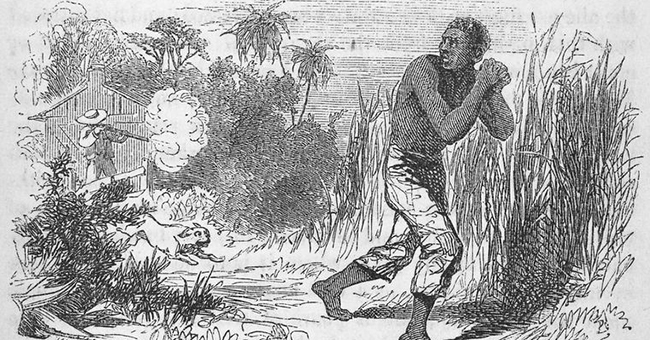Thursday
Ta-Nehisi Coates’s novel The Water Dancer, which I’m listening to at the moment, is hitting me particularly hard because of America’s continuing problem with white supremacism. The most recent outbreak—more recent even than the race-motivated Buffalo shooting—is the 31 members of the white nationalist Patriot Front group who were on their way break up an Idaho Gay Pride event, complete with shields, shin guards, masks, and other riot gear. Happily, violence was averted thanks to a timely 911 call to police, who arrested the men.
Northwestern historian Kathleen Belew, who specializes in “the white power movement, mass violence, & apocalypse,” uses a twitter thread to connect the dots between racism, homophobia, and other of white supremacy’s belief systems:
[T]o those asking why Patriot Front would target Pride: to the white power movement and some of the militant right, a host of social issues (abortion, gay rights, interracial contact, immigration, secularism) are all a problem for the same reason.
White power activists have long seen all of these issues as part of an interconnected conspiracy to lower the white birth rate, attacking their race and nation. They see this as an apocalyptic threat.
This is what connects attacks on the black community (Buffalo, Charleston) with attacks on immigrants (El Paso) with attacks on Jews (Pittsburgh) with attacks on Pride (Idaho, SF)
Belew notes that Coeur d’Alene, the targeted town in Idaho,
has a long history of white power activity going back to the late ’70s. It was the site of the Aryan Nations compound and remains symbolic both for the militant right and for peace activists that want to stop white power activism. But this is not an Idaho thing.
We should be thinking back way before the Unite the Right rally in Charlottesville (2017), because these groups have been working out of this playbook for decades, if not generations. The history of the earlier period can illuminate what comes next…
Among other things, Coates’s Water Dancer shows us how deeply racism is embedded in the American psyche. The novel is a slave narrative that unexpectedly morphs into “the most dangerous game,” the short story by Richard Connell where a man hunts his fellow human beings. In this instance, runaway slaves who have been recaptured are bought by a gang of disreputable Whites and set loose every night so that they can be hunted down by a mob. When the slaves are caught, they are pummeled, kicked and whipped and then returned to captivity, to be released again and again.
Coates pays close attention to class distinctions within the White community. There is “the Quality”—who benefit from slavery—and there are the poorer Whites, who do the dirty work of selling slaves and capturing them when they attempt to escape. The Quality don’t want to know anything about the darker side of things and despise the poor Whites for doing their dirty work for them. While the poor Whites hate the Quality with a deep passion, they regain their dignity by revisiting the same contempt upon the slaves. We see this relationship set forth in the opening chapters of Uncle Tom’s Cabin, and Coates plays upon it as well.
I don’t have the book with me so can’t share a passage. I’ll just note that many immigrants, upon arriving in America, had a cultural advantage that most new arrivals to a country do not have: they do not start off at the bottom rung on the social ladder because they have another race they can look down upon. It’s a process that Noel Ignatiev describes in his book How the Irish Became White—from despised race to despisers—and Irish immigrants weren’t alone. In fact, the feelings are so deeply baked into many Americans’ core identity that one wonders if we’ll ever get over it.
And because it exists, we continue to see a version of the devil’s bargain described in Coates’s novel. On the one hand, there are the crass Whites—like Donald Trump (German family name originally Drumpf or Drumpft)—who do the dirty racist work. And then there is the Quality that, while they seek to distance themselves, feel that they need his supporters to maintain their privileged life style. They despise him but depend upon him, and he returns the favor.


